‘Who’s our Knight in Shining Armour?’ is republished here courtesy of the author. Click here to view more of Genevieve Craig’s work.
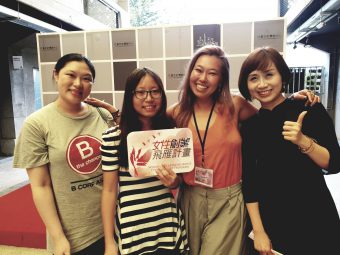
Warm plum flowers caress you as you move through the bustling Jianguo Holiday Markets, surrounded by the seventeen female and one male journalist who are ready to receive the gender equality committee of Taipei and listen to NGOs on a five- day press tour. These powerful women use their voices to report on injustices and political affairs as their life’s work. So we ask: why is gender inequality still an issue?
There is a thought that inequality is linked to the feeling of being powerless, where that voice is often a muted noise eventually fading to nothing. Thus, disempowered women say nothing and stop breathing life into their story. But how do we unpack power? Who is deciding the structures of power?
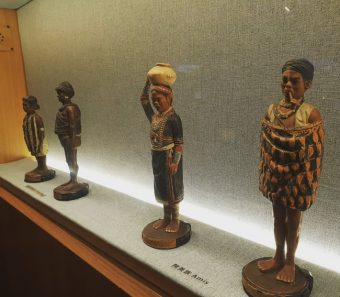
Simply, let’s start with equality and equity – treating individuals in an equal fashion in the hopes of fairness. Equity refers to our ability to have access to resources to live the way we need.
So how do women access that power?
Well, let’s have a look at our neighbours Taiwan and see how they are addressing the topic of gender equality.
Taiwan elected their first female President—President Tsai Ing-Wen—in 2016. The country is ranked number nine on the Gender Inequality Index (GII) whilst Australia is ranked number 23. According to the Human Development Report (2016), Taiwan’s GII is better than average among OECD countries and has achieved this without United Nations’ recognition and a gender pay gap of 16.2% relative to Australia’s 22.4% based on the Workplace Gender Equality Agency (2018).
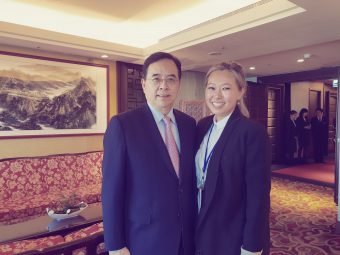
Just a few numbers to paint an empirical picture. I’m sure if we dove into any sort of data mine, we could find our lost socks. But we are not here to be purist, we are here to find out new tools and best practice for raising the voices of women.
The women’s festival called Women Makes Waves International Film Festival has been running since 1993 and is the largest women’s film festival in Asia. They not only have shown close to a thousand hard-to-find international films, but have also empowered women by giving them access behind the camera, worked within the gender equality framework to raise the standards of the media environment.
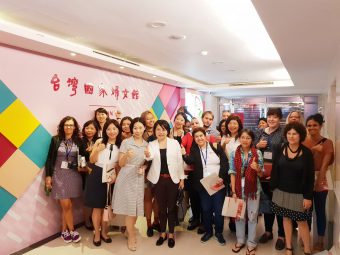
For example, Han Lin is an emerging writer/actor/director who premiered her short film in 2017 called Blossom at the Kaohsiung film festival. The story brings together experiences of the transgender community, and the economic and social struggles of starting a family with a child.
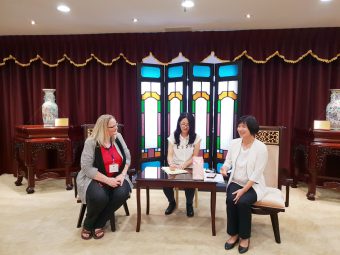 But what about the youth, you say? Well, let me share an anecdote. When I was a little girl I believed that there were girls jobs and boy jobs. That even with my STEM focussed education, I still only had the image of Dr. from Back to the Future, Robin Williams from Patch Adams, and of course all the princes from Walt Disney who were going to be my knights in shining armour. I could not see myself in those roles.
But what about the youth, you say? Well, let me share an anecdote. When I was a little girl I believed that there were girls jobs and boy jobs. That even with my STEM focussed education, I still only had the image of Dr. from Back to the Future, Robin Williams from Patch Adams, and of course all the princes from Walt Disney who were going to be my knights in shining armour. I could not see myself in those roles.
Now, I’m not sharing anything that is profound – it’s just this recurrent narrative we feed young girls. So how do we challenge our cognitive biases and change the stereotypes implanted by media, film and the arts?
Taiwan’s NGO the Awakening Foundation is disseminating female literature and history into the schooling system. In 2012, there was a focus on books educating about sexual harassment for primary-aged students, where comic-like stories of public, workplace and domestic violent scenarios are portrayed and discussed with their new message and ‘Yes Means Yes’ campaign.
Alternatively, the Flying-Goose Programme supports women entrepreneurs and equips them with business skills, access to capital and leadership mentoring. This has resulted in women receiving local scholarships and global entrepreneurial recognition such as the Forbes 30 Under 30.
 So, what do we need? Maybe it’s a teaspoon of empathy, or more women working in decision-making capacities to help get the ball rolling. Why not both? We can create curiosity in difference.
So, what do we need? Maybe it’s a teaspoon of empathy, or more women working in decision-making capacities to help get the ball rolling. Why not both? We can create curiosity in difference.
I suggest a social experiment, which, really, is just the old-fashioned way of connecting. Next time you find yourself in a communal area, or sitting on a train, take out your ear phones, get off the phone and simply smile and say, ‘Hello, my name is…’ You may find more of yourself in someone else and be your own knight in shining armour.
Genevieve Craig was hosted by the Ministry of Foreign Affairs while on a Taiwan International Gender Equality Press Tour 2018.

